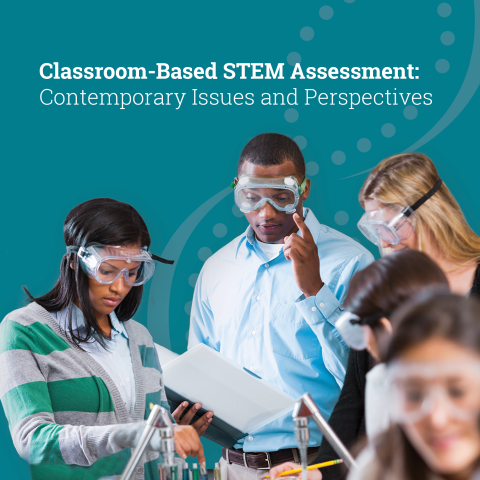National Science Teachers Association 2024 National NSTA Conference; Denver, CO
To learn more, visit https://www.nsta.org/national-conference-science-education-denver-2024.
To learn more, visit https://www.nsta.org/national-conference-science-education-denver-2024.
To learn more, visit https://narst.org/conferences/2024-annual-conference.
To learn more, visit https://meetings.aaas.org/.
A 10-week, energy literacy curriculum unit for 6th grade students. Students will study energy use and transfer in their own school buildings. They will explore how Earth systems supply renewable and nonrenewable energy, and how these energy sources are transformed and transferred from Earth systems to a school building to meet its daily energy requirements.
A 10-week, energy literacy curriculum unit for 6th grade students. Students will study energy use and transfer in their own school buildings. They will explore how Earth systems supply renewable and nonrenewable energy, and how these energy sources are transformed and transferred from Earth systems to a school building to meet its daily energy requirements.
A 10-week, energy literacy curriculum unit for 6th grade students. Students will study energy use and transfer in their own school buildings. They will explore how Earth systems supply renewable and nonrenewable energy, and how these energy sources are transformed and transferred from Earth systems to a school building to meet its daily energy requirements.
A 10-week, energy literacy curriculum unit for 6th grade students. Students will study energy use and transfer in their own school buildings. They will explore how Earth systems supply renewable and nonrenewable energy, and how these energy sources are transformed and transferred from Earth systems to a school building to meet its daily energy requirements.

This report takes stock of what we currently know as well as what we need to know to make classroom assessment maximally beneficial for the teaching and learning of STEM subject matter in K–12 classrooms.
Explaining phenomena associated with a system involves describing a system’s structure and articulating the process through which the system’s structure changes over time. This paper defines geo-sequential reasoning in the context of plate tectonics and uses it to analyse how students explain the geological processes that occur along convergent boundaries as part of the plate tectonics system. This study was part of design-based research on an online Plate tectonics module that included simulation-based modelling developed for secondary school students.
Explaining phenomena associated with a system involves describing a system’s structure and articulating the process through which the system’s structure changes over time. This paper defines geo-sequential reasoning in the context of plate tectonics and uses it to analyse how students explain the geological processes that occur along convergent boundaries as part of the plate tectonics system.
When integrated into online curriculum modules for students, educative curriculum materials (ECMs) can enhance teachers’ enactment of these modules. This study investigated (1) the use of digitally enhanced ECMs built into an online plate tectonics curriculum module by teachers with different backgrounds and teaching experience, (2) the relationship between teachers’ use of ECMs and student learning gains, and (3) teacher reflections on the value of the ECMs they used.
When integrated into online curriculum modules for students, educative curriculum materials (ECMs) can enhance teachers’ enactment of these modules. This study investigated (1) the use of digitally enhanced ECMs built into an online plate tectonics curriculum module by teachers with different backgrounds and teaching experience, (2) the relationship between teachers’ use of ECMs and student learning gains, and (3) teacher reflections on the value of the ECMs they used.
Project goals are 1) to map and synthesize the research literature on computer supported collaborative learning (CSCL), 2) identify topics relevant to K12 practitioners for use in practice and determine if new research is needed to create more usable knowledge, and 3) create materials with researchers and practitioners working together. In the three phases of the project, we use a diversity, equity, and inclusion lens. In this poster we discuss findings from Phase 1.

Using the nationally representative Early Childhood Longitudinal Study, we examine the correlates of elementary school science achievement gains for multilingual learners. We examine both science inputs - such as time on science, instructional materials, and topics taught - as well as language inputs - including ELL instructional model, languages spoken by educators, and multilingual resources. Our findings provide exploratory evidence on the factors related to science learning gains for multilingual learners.
